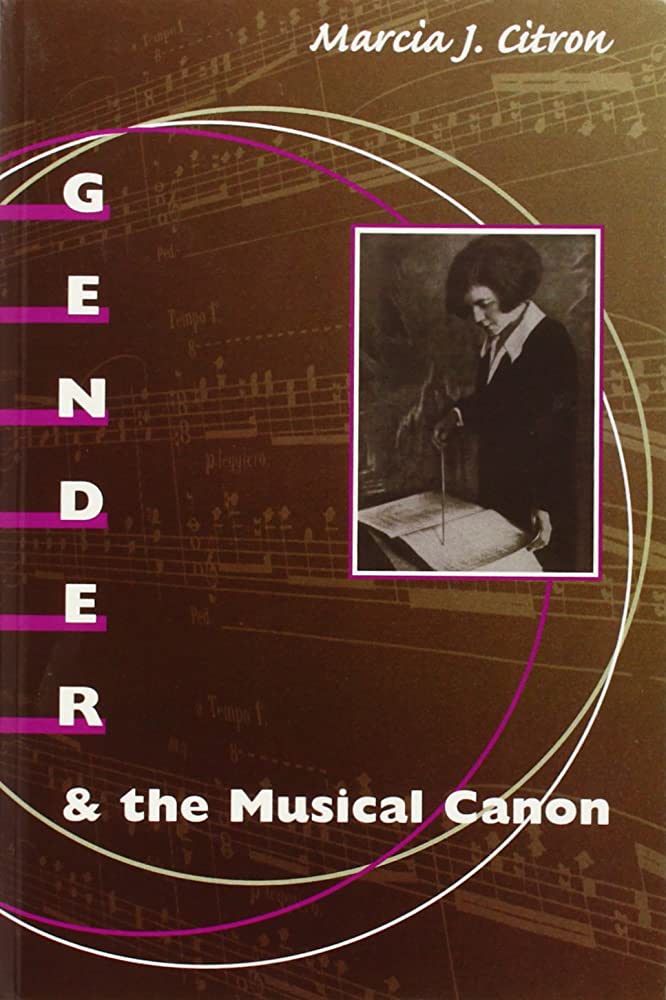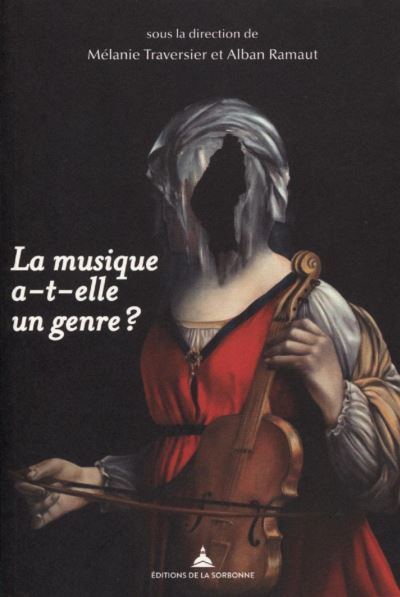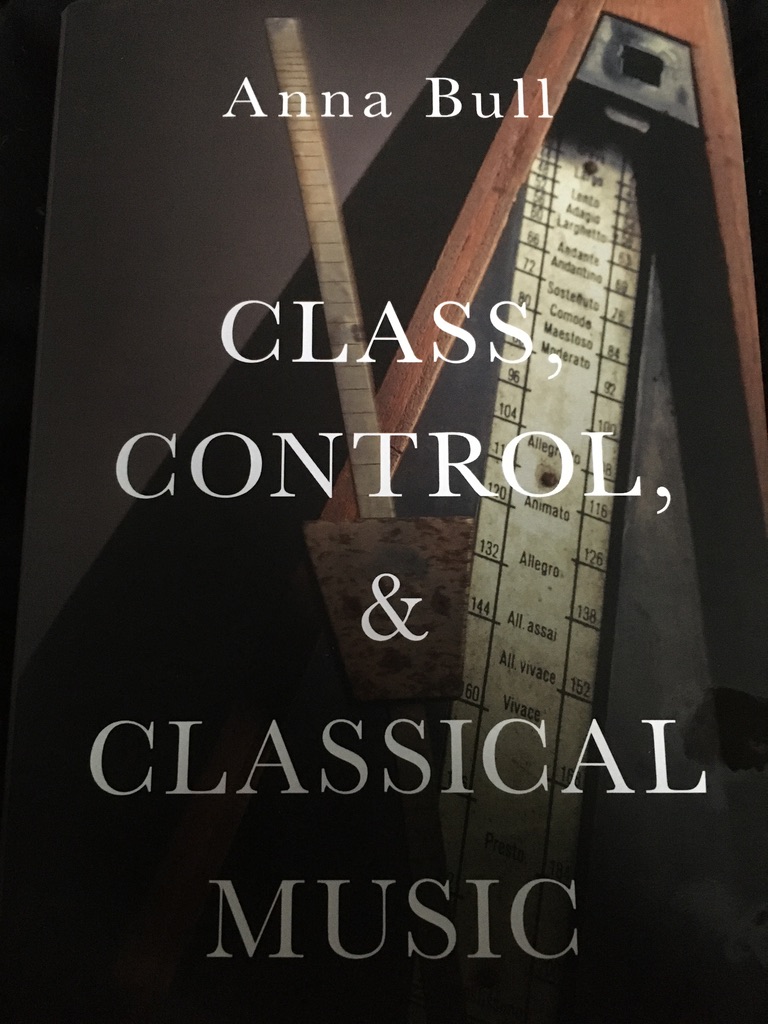Over the past several months, I’ve added a few books about women in music history to my to-be-read list that I’m SUPER excited about… but after a few conversations with other educators who teach about classical music by women composers, I’ve come to realize that the resources I tend to favor are very different from theirs.

More Than History
In music school, many of us learn that classical music is abstract. We’re trained to analyze compositions using a framework grounded in theory that detaches them from their sociocultural environments. We’re also enculturated to spend numerous hours per week in isolated practice, and set aside other interests in order to put the music first. But here’s the thing – concerts and rehearsals are also social gatherings. We interact with other performers, and also with our audiences. And as real-world human beings, we’re all socialized in the predominant gender norms of our respective cultural and class backgrounds.
In order to understand not only what caused prejudice towards female classical musicians but why, we need more context around the historical societal norms that have influenced our musical community. And that’s where resources informed by social science and gender studies come in.
My Reading Preferences
Most collections of historical biographies and musical anthologies feel too general to me – they’re great for looking up certain composers, but I use them more like an encyclopedia or directory rather than reading them cover to cover.
Also, the vast majority of books on women in music history that I’ve come across center the stories of vocalists and pianists. On one hand, that makes sense, since singing and playing piano were the most socially appropriate forms of artistic expression for musically inclined women in the past. But that bias also sends the unspoken message that yes, there were women musicians… but none who played the flute, like me. Which leaves me feeling even more left out and disappointed. Even when an imbalance of information exists, it’s important to acknowledge that women’s music history is not one-size-fits-all.
As a result of the limited information on historical flutists, I tend to gravitate towards resources that help me learn a framework I can then apply to other areas in my approach to music. I love research that takes an interdisciplinary approach – as someone with a background in cultural anthropology, my default is always to look at music history through a social interactionist lens.
The books below are a few resources that I’m super excited about but that can be hard to find in brick-and-mortar bookstores or libraries. However, you can order all of them online as a hardcover, paperback, or e-book. Two of them also have open access versions.
On To the Books!!
Read on to see what’s in my current book stack for learning about the intersection of gender studies & classical music!!
PS – The links in this article aren’t affiliates or sponsors. I’m just passing on some resources that I’m currently enjoying, to help spread awareness of a lesser-known area in the field of musicology 🙂
Gender and the Musical Canon – Marcia J. Citron

Marcia Citron was the first musicologist I encountered in my research whose perspective truly resonated with me. Several years ago, I came across an article where she advocated for an interdisciplinary approach to musicology and talked about how it’s more common to learn about feminist musicology through women’s studies than music school. That was exactly my experience – and while I consider myself lucky that my anthropology professors were so supportive, I had no idea that this was a typical experience and not some quirk of my university.
Dr. Citron won the Pauline Alderman Prize from the International Alliance of Women in Music for this book, and although she only published it 30 years ago, it’s just about as close to a “classic” work in feminist musicology as you can get. In this book, Dr. Citron examines institutionalized attitudes and practices in classical music that often go unquestioned, and explores their impact on the treatment of women musicians and composers by critics, publishers, and other agents who shape the nature of the classical canon. Although her work is well-researched, her writing is still accessible even if you don’t have a deep understanding of musicology or feminist theory.
La musique a-t-elle une genre? – Mélanie Traversiere & Alban Ramaut, ed.
Translation of the Title: Does Music Have a Gender?

This is the only book I’ve ever seen that devotes an entire chapter to women who played wind instruments in historical eras. That alone was enough to sell me on this book – I was literally jumping up & down with joy. 😀
If you’re a flutist who’s interested in music history, I think it’s important to understand French (because so much of our historical pedagogy came from the Paris Conservatory). But if you don’t, no worries! There’s an open-access version of this text you can read online in Open Editions – load this page using the Chrome browser, then select your preferred language using the Google Translate plugin. I’ve checked a couple chapters, and while the English translation isn’t perfect, it’s close enough to understand most of the information.
This volume collects sixteen articles exploring socio-historical influences that contributed to the invisibilization of women composers and classical musicians from the medieval times to the 20th century. Topics of discussion include deconstruction of gendered discourse in music criticism, the exclusion of women musicians from treatises and education manuals, and analyses of music theory and pedagogy through the lens of gender theory.
Class, Control, and Classical Music – Anna Bull

Dr. Bull’s story resonated with me so much that I literally started crying while reading her introduction. It felt so validating to hear the story of another classical musician who grew up with Pacific Islander cultural influences that put classical music in a different light, who also stopped playing for awhile then went back to study social science in order to help understand and learn from her experiences. This is the type of research I would have loved to do if I’d continued in higher ed, and I am SO thrilled there’s someone out there actually doing it.
In this book, Dr. Bull explores a socio-cultural analysis of the classical music institution that explores how musical practices & aesthetics are shaped by wider conditions of economic inequality in the UK. She doesn’t exclusively center gender studies in this publication, but it’s still a major topic of discussion in each chapter. Also, her research follows the experiences of a cohort of youth musicians – another valuable & refreshing perspective on our current musical culture. This book was published in 2019, and paperback editions became available last year.
PS – Dr. Bull also posted a pre-publication version of this book on her blog. I highly recommend buying a physical copy, since I have SO MANY bookmarks and post-its in mine and I’m only halfway through. But I love how she’s also made a copy of the full text available for open access!
Let’s Read!
I haven’t finished any of these books yet, but it takes me ages to actually finish a full nonfiction book. In the meantime, I wanted to share a bit of what I’ve been learning about behind-the-scenes to help promote visibility and awareness for this area of study.
Put on a pot of coffee, find a comfy chair, and let’s read together! ☕
♡ Nicole